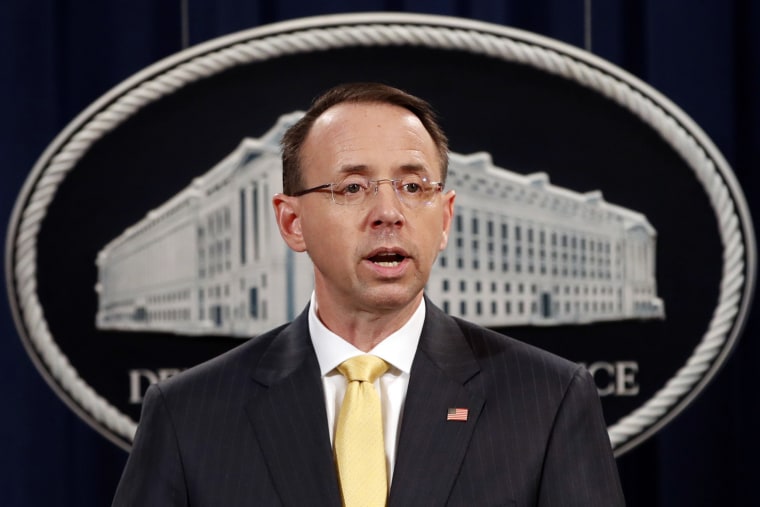Legal analysis
Thirteen Russian nationals were indicted by a federal grand jury on Friday, charged with conspiracy, fraud, identity theft and other crimes in connection with their alleged activity and involvement in the 2016 presidential campaign.
For many, the lengthy and detailed indictment is conclusive proof of violation of federal law prohibiting contributions, expenditures, or activity by foreign nationals in any election in the U.S.
Except the indictment doesn't exactly include that crime as one of its eight counts. The indictment contains one count of conspiracy to defraud the U.S., one count of conspiracy to commit wire and bank fraud, and six counts of aggravated identity theft.
This raises the question: Why allege illegal Russian activity in the election throughout the indictment, but not actually charge it?
Whatever the reason, it's no accident. We must assume it is the result of countless hours of strategic planning by experienced prosecutors on special counsel Robert Mueller's team. We can also assume that, for now, Deputy Attorney General Rod Rosenstein did not reveal the end game at Friday's press conference announcing the indictments.
One important inference to be drawn from the indictment: Mueller's team doesn't feel the need to include specific counts alleging violations of the Federal Election Campaign Act (FECA) to obtain an indictment against these Russians.
For example, count one alleges a conspiracy to defraud the U.S., or a "Klein" conspiracy. This statute outlaws conspiracies to violate federal law, defraud the government of property or obstruct the performance of its agencies. Any scheme designed to thwart the statutory duties of the Federal Election Commission alone, plus an overt act, can be prosecuted as a conspiracy to defraud. Even though the overall theme of the indictment involves federal election law, violation of that law was not charged.
The important advantage of the conspiracy to defraud statute is that it does not require any charge of, or even reference to, violating a separate substantive statute, such as FECA. In fact, the conspiracy count technically alleges concealing the Russian involvement from the government — not the involvement itself. Perhaps the simplest explanation for why Mueller didn't include a separate count for election law violations is: He didn't need to.
The second inference: If the Mueller team could have secured an indictment for a violation of federal election law but did not, then this was a deliberate choice. We may not understand the reason behind this strategy until much later.
Any analysis of the Mueller team's high-level chess moves is fraught with peril. These arch-prosecutors have had months to develop their game plan. The world has had only the last 24 hours to try to interpret their maneuvers contained between the lines of the charging document.

President Donald Trump and his supporters have already suggested the indictment exonerates the president. They point to Rosenstein's comments during the press briefing that "(no) American was a knowing participant in this illegal activity," and the fact that the Russian meddling promoted Bernie Sanders as well as Trump. Trump tweeted: "Russia started their anti-US campaign in 2014, long before I announced that I would run for President. The results of the election were not impacted. The Trump campaign did nothing wrong — no collusion!" The idea here is that the indictment's omission of allegations against Trump or any Americans means there was no collusion.
However, other readings of the indictment suggest it's too early for Trump to declare victory. The indictment accuses Russian individuals and entities — notably not the Russian government, however — of attempting to unlawfully influence the election and related crimes. If there is a core crime of interference, perhaps the next step is to draw a nexus between that activity and the Trump campaign. Or the benefit to prosecutors here could be that the broad description of allegations will help investigators get broader discovery, even if it's not likely that the defendants will ever stand trial in the U.S.
Ultimately, the indictment does not clear Trump or his team by omission, and there is every indication that more indictments could be forthcoming.
Danny Cevallos is an MSNBC legal analyst. Follow @CevallosLaw on Twitter.